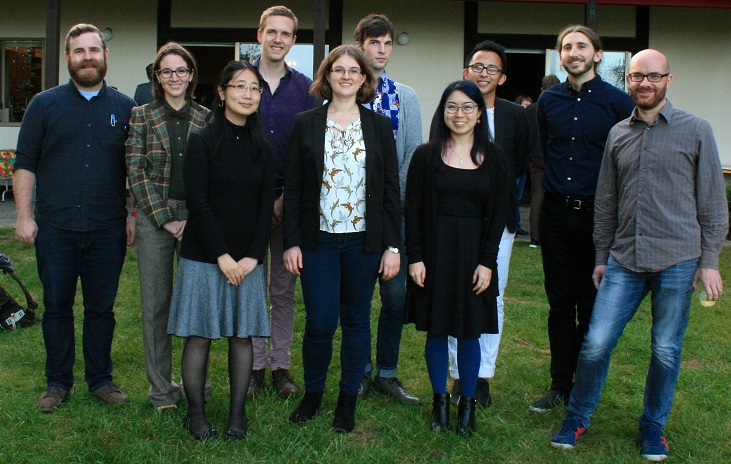ANOTHER YEAR, ANOTHER LASC
On Saturday, March 18th, the department hosted Linguistics at Santa Cruz (LASC), which was a resounding success, featuring talks on linguistic topics of all shapes and sizes on languages both near and far. The day of talks by second- and third-years was rounded out by distinguished UCSC alumnus Kyle Rawlins’s talk on “Unary ‘or'”. The evening was then capped off with a feast and commensurate levels of merrymaking at the Cowell Provost House. Thanks to everyone who helped make LASC happen–in particular, Lisa Hofmann, our LASC paparazzo, who provided us with this photo of the LASC presenters:
Back row: Matt Wagers (LING 290 instructor), Margaret Kroll, Tom Roberts, Steven Foley, Jed Pizarro-Guevara, Jake Vincent
Front row: Hitomi Hirayama, Lauren McGarry, Kelsey Sasaki, Kyle Rawlins
